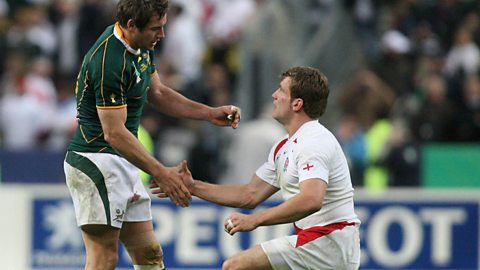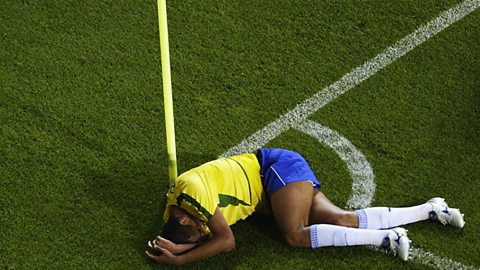Sporting behaviour - sportsmanship
Anyone taking part in sport must take personal responsibility and behave in a certain way which is fully compliant with the rules and the expected behaviours of the sport. This is known as sportsmanship.
Rules
Participants have to follow the rules of the sport. In organised sport, these are developed by each sport's governing body and are upheld by officials during play. Rules make sure that play is safe and fair. Players are penalised if they do not respect the rules or the officials. During informal or adapted activities, participants often agree their own rules. Agreeing adaptations to the rules can make sport more inclusive, but still ensure fairness and safety.
Etiquette

Sport also has unwritten rules or customs – etiquette – to uphold respect and fairness. These help people to play in the 'spirit of the game'. They often require players to take an active approach to respect and fairness, not just avoid breaking the rules. For example, etiquette includes:
- acknowledging that a ball was out in tennis
- shaking hands with opponents before and after an important football match, regardless of the outcome
Sportsmanship
Sportsmanship means playing within the rules and understanding and using sports etiquette. It is playing fairly in the spirit of the game, showing respect and fair play to opponents and graciousness in both victory and defeat. Sportsmanship includes:
- kicking the ball out when someone is injured in football and the other team giving possession back
- helping a rival player up if they are down injured
- a player calling the ball 'in' at a tennis match, even though the line judge called it 'out', thereby giving the point to their opponent
Gamemanship

Without breaking them, players may bend the rules and use questionable methods to gain an advantage. Examples include:
- deliberately falling after being tackled in the penalty area to try to win a penalty in football
- distracting an opponent, for example sledging A term used in cricket when a player insults or intimidates an opposition player in order to gain an advantage. in cricket where the bowler and fielders verbally abuse or intimidate a batsman to put him off
- time-wasting to prevent the opposition from trying to score in hockey
Gamesmanship exists at all levels and in many sports. Due to media coverage, many examples are seen in elite sport. Some sport psychologists and philosophers believe this reflects players' motivation. Competitors who are strongly ego-orientedComparing your performance to others. or extrinsically motivatedSeek external recognition, eg winning, prizes, awards, grades. are more likely to have a 'win at all costs' attitude, leading to unsporting behaviour. There is less incentive to cheat if someone is task-orientedFocusing on your own improvement. and intrinsically motivated Driven by an interest or enjoyment in the task..
Question
A player kicks a ball out of play to stop the game when an opponent is injured. Is this sportsmanship or gamesmanship?
Sportsmanship – this shows respect for the opposing team and upholds safety and fairness.